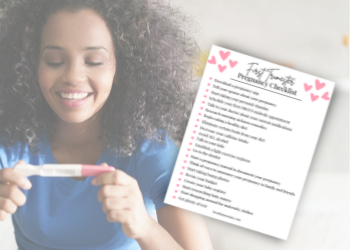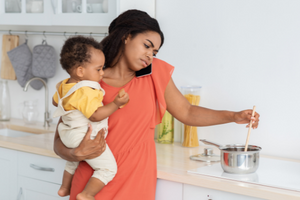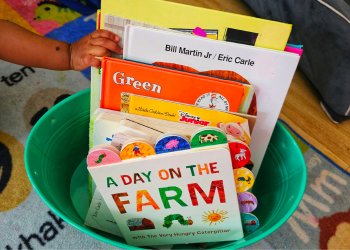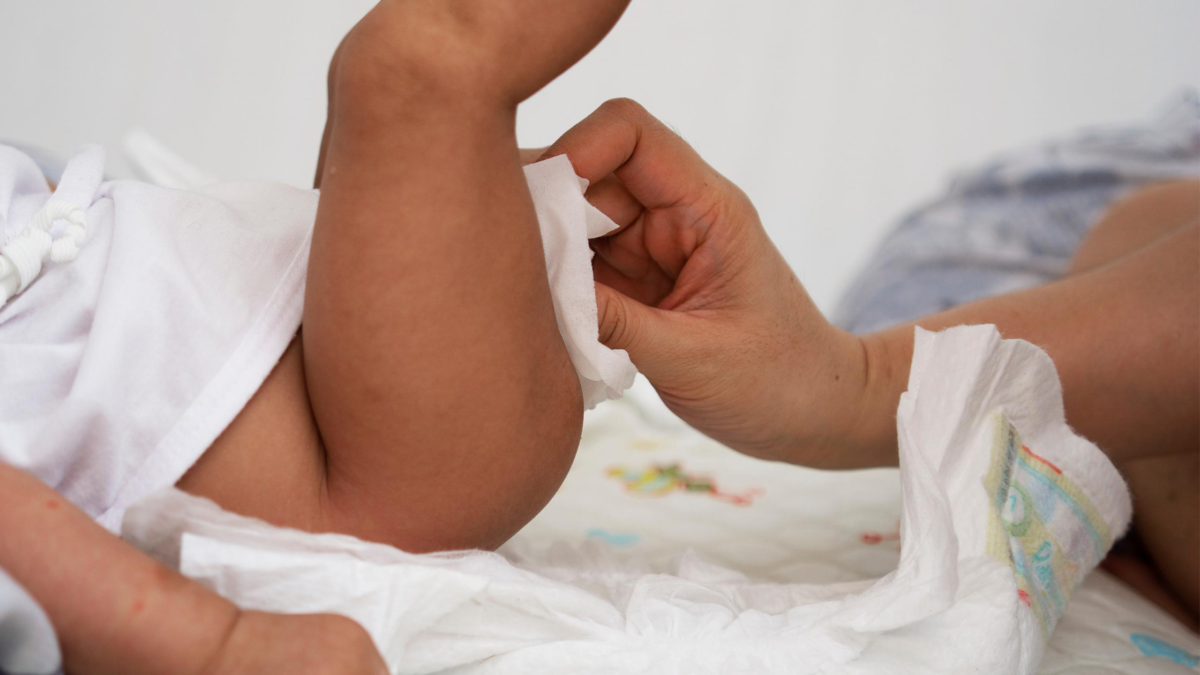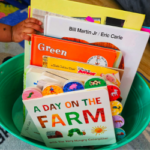A first trimester checklist that will make your first trimester of pregnancy a lot less stressful!
Congratulations on your pregnancy! I am delighted for you!
Now that you found out you are expecting, you’re probably wondering, now what? Especially if this is your first pregnancy.
As a mom of three, I know the feeling. I felt this way with each one of my pregnancies, no lie!
The first trimester is the most important in your pregnancy. This first trimester is when your body undergoes significant changes, and the fetus is more susceptible to chemical disruption in this early stage of pregnancy. The habits you establish in this stage of pregnancy, good or bad, will influence the outcome of your pregnancy. That’s why a first-trimester checklist is essential.

Why do you need a first-trimester checklist?
A first-trimester checklist is necessary because it highlights the important things you need to do in the early stages of pregnancy and encourages you to put healthy habits into practice for the sake of your health and your developing baby.
Download your FREE first trimester checklist here.
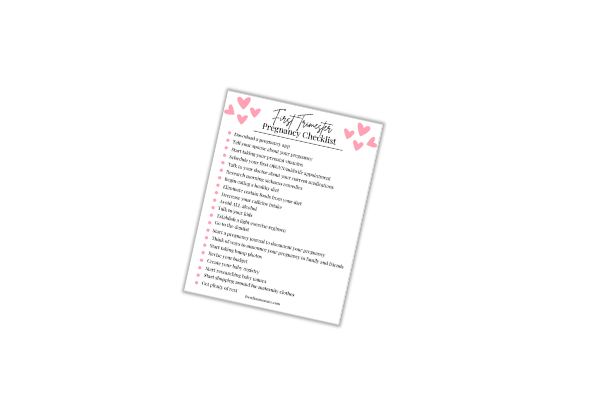
21 Key Things To Do in the First Trimester of Pregnancy
1) Download pregnancy app:
Download a pregnancy app as soon as you find out you are pregnant. This app will calculate your due date and let you know how far along you are in your pregnancy.
2) Tell your spouse about your pregnancy:
Who better to share this amazing news with than your spouse!
3) Start taking your prenatal vitamins:

If you have not started taking your prenatal vitamins yet, begin taking them as soon as you find out you are expecting. Prenatal vitamins ensure that your baby gets all the vitamins and minerals it needs for healthy development. Prenatal vitamins also decrease the risks of congenital disabilities in your child.
4) Schedule your first OBGYN/midwife appointment:
And, of course, schedule your first OBGYN appointment. If this is your first pregnancy, you will have to do some research to help you find a provider, but this step is easier if this is your second or third pregnancy. If you have friends who are moms, it’s good to ask for a referral.
5) Talk to your doctor about your current medications:
During pregnancy, certain drugs and medicines can cross the placenta and reach your developing baby, causing harmful effects. The harmful effects may include intellectual disabilities, developmental delays, and more severe outcomes. Talk to your doctor about any medications you take, including over-the-counter medicines, prescribed medications, and even supplements and vitamins and herbal remedies.
6) Find morning sickness remedies:
Morning sickness peaks between week 6 and week 18 of pregnancy. Finding an anti-nausea remedy that works for you for your morning sickness will make a world of difference.
Related article: Overcome Morning Sickness Misery With These 8 Pregnancy Sickness Hacks!
7) Begin eating a healthy diet:
Although it is possible to develop a food aversion to certain foods, eating a well-balanced diet will provide you and your developing baby with the nutrients to thrive in this early stage of pregnancy.
8) Eliminate certain foods from your diet:
Certain foods are harmful to the developing fetus during pregnancy. Eliminating certain foods will decrease your decrease of being exposed to food-borne pathogens. Allow foods such as undercooked or processed meats, unpasteurized milk or cheese, junk foods, and high mercury fish (swordfish, tuna).
9) Decrease your caffeine intake:
According to the American Pregnancy Association, caffeine is a diuretic that increases urination. A frequency of urination can reduce the fluids in your body, leading to dehydration.
10) Avoid ALL alcohol:
Alcohol can be passed to the baby via the umbilical cord. If consumed during pregnancy, alcohol can cause miscarriage, stillborn, and other intellectual disabilities.
11) Talk to your kids:
If you have children, it is important to figure out the right time to share the news with them, especially since you will be extra tired and experiencing nausea. You don’t want them to worry about mom; keeping them in the loop will make sense of the questions they will inevitably have.
Related article: 5 Exciting Benefits of Having Children
12) Establish a light exercise regimen:

There are many reasons why you should establish a light exercise regimen during early pregnancy. As I have mentioned, your body is undergoing significant changes. Exercise will not only reduce bloating, swelling, and backaches, but it will also keep your digestive system moving, preventing constipation. Exercise will also help you sleep better, as well as boost your mood and energy levels.
13) Go to the dentist:
You are at a higher risk for tooth decay during pregnancy due to the exposure of additional acids from morning sickness. You are also at risk for gingivitis, a gum disease that can make your gum red and sore and lead to bleeding. Gingivitis is dangerous to you and your baby because it could cause low birth weight or preterm birth. Going to the dentist regularly, even during pregnancy, ensures you stay up to date with good dental hygiene.
14) Start a pregnancy journal to document your pregnancy:
Keeping a pregnancy journal is a powerful way to capture your entire pregnancy experience. When you are pregnant, you go through a rollercoaster of emotions. This journal will help you help to fully express your innermost feelings. You’ll also experience some brain fog or “pregnancy brain” during pregnancy, and will be able to use this journal as a reference when you are feeling forgetful, which is bound to happen. Plus, you can look back on this journal for years to come and will even be able to compare your different pregnancy experiences if you were to become pregnant again.
15) Think of ways to announce your pregnancy to family and close friends:
When deciding on when to announce your pregnancy, timing is important, but that’s up to you. I have a few friends who were so exciting that they chose to announce their pregnancy right away, and there’s nothing wrong with that. However, it is recommended that you wait until the end of the first trimester to announce your pregnancy due to the risk of miscarriage in the early stages of pregnancy. If you have had a problematic pregnancy in the past and need support, disclosing your pregnancy to a handful of people may be helpful.
16) Start taking bump photos:
You won’t necessarily be showing in the first trimester, as most women start showing between 12 and 18 weeks, but you will begin to notice pregnancy bloating. Taking bump pictures is a fun way to keep track of the change your body is experiencing.
17) Revise your budget:
Having a baby is not cheap! Adjusting your budget by adding your baby’s essentials will make your life easier financially if you are prepared.
18) Create your baby registry:
The first trimester is the perfect time to start your baby’s registry. Creating a baby registry can be time-consuming. If you start early, you can always go back to add the things you forgot to add. If you are a second or third-time mom, I am sure you have a lot saved from your previous babies. Going through your old baby items and grabbing the things you think you’ll use for your new baby is a great way to ensure you only add the essential things to your baby registry.
Related article: 12 Super Cute Personalized Newborn Baby Gifts You’ll Love!
19) Start researching baby names:
You’ll be able to find out the sex of your baby by the 10th week of pregnancy through a blood test, which will make it easier to start putting baby names together; how exciting!
20) Start shopping around for maternity clothes:
Although you technically won’t be showing until you are between 12-18 weeks of pregnancy, it’s still fun to start looking around for cute maternity clothes.
21) Get plenty of rest:

And Finally, get plenty of rest! You will experience a lot of fatigue in this first trimester because of changes in your hormone levels. Growing a tiny human is tiresome! Find ways to sneak in a nap whenever you can.
I didn’t add this to the list because this goes without saying, but stop smoking and taking legal or illegal drugs immediately after finding out you are pregnant, even if you only take them occasionally. And please remember to tell your doctor if you smoked or took drugs even after you have stopped.

